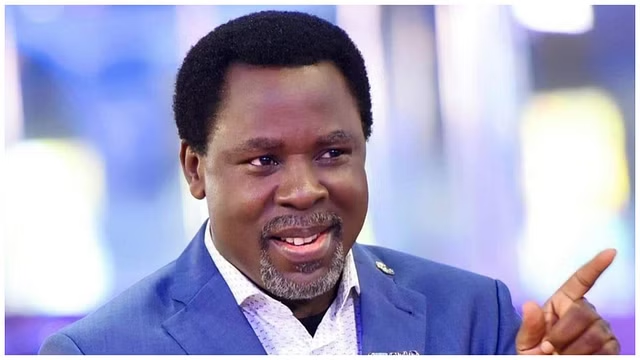
There is one well-known popular expression which is often trotted out when some policy decision relating to a large organisation fails to gain much traction or support from those who work for it. Too many people within the organisation stand to lose something if the policy is implemented. People declare that to vote for the proposal would be like ‘turkeys voting for Christmas’. For an organisation like a company or a school, new policies often involve the loss of jobs and the slashing of budgets. It is not difficult to persuade a substantial group to vote to attempt to see off the threatening proposal. To pass a proposal that in any way challenges the existing power and privilege of the status quo is seen to work against the apparent interests of all in the organisation. The turkeys being fattened for Christmas have no say in their inevitable fate but, if they did, they would not permit something so obviously contrary to their interests to take place. The recent survey taken by the Response Group that is trying to find a way forward after the Wilkinson and Jay reports for the Church of England has found, unsurprisingly, that the Jay report is unpopular with many senior church officials and the newly created profession of safeguarding ‘experts’ within the Church. Jay’s conclusion is that the entire safeguarding enterprise should be handed over to two new safeguarding charities, entirely independent of the church structures. This radical proposal was never going to win prizes for popularity. I dare also to suggest that the level of acceptance would be the lowest among those who have spent the least time reading and studying it.
The Church of England should have counted itself as extremely fortunate to gain the services of the most qualified expert in Britain (the world?) on safeguarding to advise it. Jay was asked by the Archbishops’ Council, in the aftermath of the ISB debacle, to show the Church ‘how to form an independent and scrutiny body for the C/E’. Now that the Church has received her report and has had its first opportunity to read the conclusions, it is showing strong indications of cold feet. Clearly for many the independence that is pointed to, as an important ingredient of future safeguarding, would have substantial implications. These would challenge the total independence of the 42 dioceses and the vested interests of those with power in the national church. Organisations always stand to lose something when any power at the centre is devolved to groups on the edge. The common-sense interpretation of independence will indicate that, unless it is truly detached, as Steve Reeves pointed out in his memorable speech at General Synod, it will not fulfil the criterion of proper independence or be worthy of that description. Those with the most power to lose, the bishops and those employed to be diocesan safeguarding officers across England will be among those likely to resist a radical understanding of independence. The proposed new structures would continue, according to the proposals, to work with existing employees. Clearly there would have to be changes in areas like professional accreditation and oversight and this would, no doubt. be seen to challenge existing patterns of power and control. The fact that Jay has identified serious examples of failing and dysfunctional process in the course of her numerous interviews with individuals involved at every level of the safeguarding process, is quietly overlooked by those anxious to oppose her recommended reforms. Whenever power in an institution is threatened, those who stand to lose power will always be found manning the barricades. That is what we see. Broadly speaking the survivors’ groups and their supporters are most supportive of Jay, while the individuals with the most to lose take a stand that, with honourable exceptions, wants to resist any move in the direction of an outside body taking independent responsibility for the implementation of all safeguarding activity.
In writing this piece, I was guided by the videos prepared by Martin Sewell and Clive Billenness entitled the Jay Report. I do not intend to repeat all their points but one particularly useful statement, defining ‘independence’ located by Clive, would help the Church if it became part of the of the Church’s thinking.
Independence of mind is the state of mind that permits a member to perform a service without being affected by interests that affect professional judgement, thereby allowing an individual to act with integrity and express objectivity and professional scepticism.
The reason for Jay recommending two new totally independent bodies managing and overseeing safeguarding in the Church came from her observation that the existing functioning of safeguarding protocols in the Church was highly variable in quality. An individual could be in a position where life-changing decisions about their future could be taken by individuals ‘with little safeguarding knowledge or experience.’ Jay interviewed at depth dozens of individuals and received written submissions from hundreds more. Safeguarding in the C/E, even from my limited experiences of listening to the stories of those who have gone down the rabbit hole of seeking justice and accountability, is a postcode lottery. In some places, to back up what was said above about ‘life-changing decisions’, rulings and decisions are made with no possibility of any appeal. Core groups sometimes seem intoxicated by an access to a power over peoples’ lives when at their most vulnerable. They seem sometimes to ignore common sense and the right of everyone to a fair hearing. The European Court of Human Rights speaks about the right of everyone to a fair trial. The two words used are independent and impartial. Also, the importance of being free from conflicts of interest is a basic principle of justice. If church institutions ever think that they can offer justice without the counterbalance of separate structures providing checks and balances, they are likely deceiving themselves. Jay’s gathering of evidence to add to the material that she had already heard and read in the 7-year ICSA hearings, has given her the status of knowing more about the implementation of safeguarding than anyone else in Britain. Her concluding recommendation for two properly independent bodies to manage safeguarding on behalf of the C/E is not just an idea sketched out on the back of an envelope; it is a compellingly argued position that has the ability to convince, like a well-presented case in a court of law.
The current hesitancy, shown on the part of many church leaders and safeguarding professionals in the survey recently conducted by Church’s Jay/Wilkinson Response group, should not surprise us. For such a surrender of institutional power to be a reality, there has, in addition, to be an honest recognition by the Church that the past thirty years have frequently been a disaster area in this arena of safeguarding. A system which allows the top layer of management to be the chief pastoral figure while expecting them to be judge and jury with regard to suspected miscreants, is never going to operate well. There are still hundreds of damaged survivors and victims who seek healing and justice from harmful episodes in the past. Some trust, against all the evidence, that the Church is an institution able to provide balm for the wounds she has inflicted on them in the past. The history of safeguarding has not been a story of binding up wounds and providing compassionate care for the afflicted. Rather it has revealed itself to be, for those of us who scratch below the surface, an institution that consistently puts organisational reputation ahead of pastoral integrity.
The provision of safeguarding services to all, providing love and healing to all who have been wronged or harmed by the institution is perhaps an achievable task. It will however not be achieved in any system where reputation and a illusion of goodness are upheld to the exclusion of honesty and integrity. There is a verse in the Bible which comes to mind, but in a parody form. ‘What gain is it for a Church like the C/E to gain wealth, status, privilege and power, if it is obtained at the cost of honesty, integrity and truth.’ The answer to the question in the title of this piece may very well determine the future of the Church over the next fifty years. Jay is calling the Church to honesty and truth. A failure to respond to the values of our founder can only end in emptiness and tears. I hope the General Synod are fully aware of their responsibilities when they come to discuss this matter in July.








